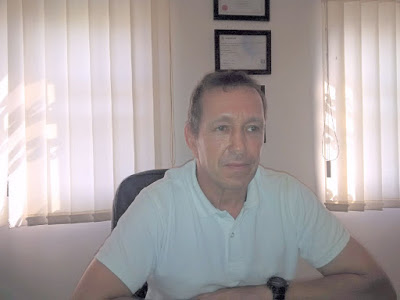 |
| Mr Paul Stansfield, General Manager, Africa Diving Services |
Mr Paul Stansfield, the General Manager, Africa Diving Services (ADS), has
called on the government to ensure enforcement of diving regulations in Nigeria
to boost the capacity.
Stansfield made the call in an interview with the News Agency of Nigeria
(NAN) in Lagos.
He said enforcement of the regulations would support professionalism and
build the needed confidence in the standards as required internationally.
build the needed confidence in the standards as required internationally.
According to Stansfield, the regulations for safety standards should be
implemented to cover both offshore and inshore operations.
implemented to cover both offshore and inshore operations.
“I’m going to say offshore enforcement of regulation should be taken
seriously because that is where we work generally. But safety-wise, I will say
inshore should be more regulated.
seriously because that is where we work generally. But safety-wise, I will say
inshore should be more regulated.
“It needs to be across the board to set standards because the policing, as
far as I am aware is done by oil companies.
far as I am aware is done by oil companies.
“I am not sure of the qualification of the inshore divers, but a lot of
work goes on, but there is no regulation from government; just the oil
companies and contractors themselves,’’ he said.
work goes on, but there is no regulation from government; just the oil
companies and contractors themselves,’’ he said.
Stansfield said the diving industry had massive potential for job creation
due to emerging projects in Nigeria and West Africa generally that require
their services.
due to emerging projects in Nigeria and West Africa generally that require
their services.
He said the new projects would, however, require more training for the
divers to fit into “saturation’’ diving level.
divers to fit into “saturation’’ diving level.
NAN reports that saturation level in diving is when divers go beyond 50
metres under the water.
metres under the water.
“There is a massive potential in diving in Nigeria and a lot of big
international companies are heading this way, trying to muscle in on Nigeria.
international companies are heading this way, trying to muscle in on Nigeria.
“They are also pushing into West Africa as a whole because they see lots of
work, lots of new fields, lot of developments going on.
work, lots of new fields, lot of developments going on.
“Saturation, which is the deeper work (after 50 metres), as far as known in
Nigeria, there are no saturation divers.’’
Nigeria, there are no saturation divers.’’
Stansfield advised that divers should get the International Marine
Contractors Association (IMCA) qualification which is a world-class recognised
certification in diving.
Contractors Association (IMCA) qualification which is a world-class recognised
certification in diving.
He said that though the training abroad had been difficult because of
financing, the Nigerian divers could benefit from a proposed training facility
by the Nigerian Navy which needed private investment.
financing, the Nigerian divers could benefit from a proposed training facility
by the Nigerian Navy which needed private investment.
He also pointed out that the only big robots known as Remote Operated
Vehicles (ROVs) could dive beyond 300 meters in cases of rescue in sea
accidents.
Vehicles (ROVs) could dive beyond 300 meters in cases of rescue in sea
accidents.
































































